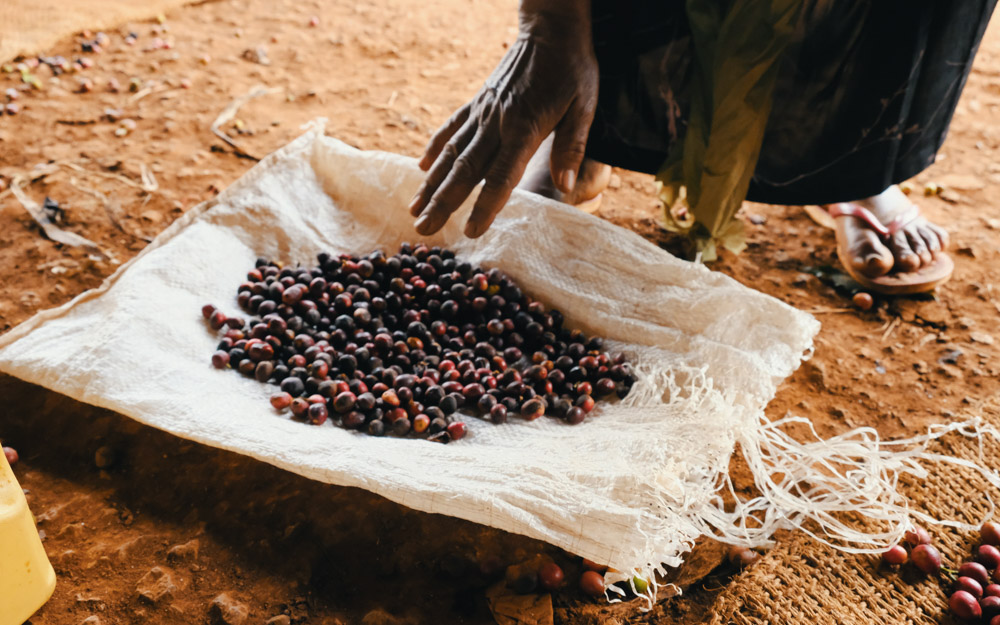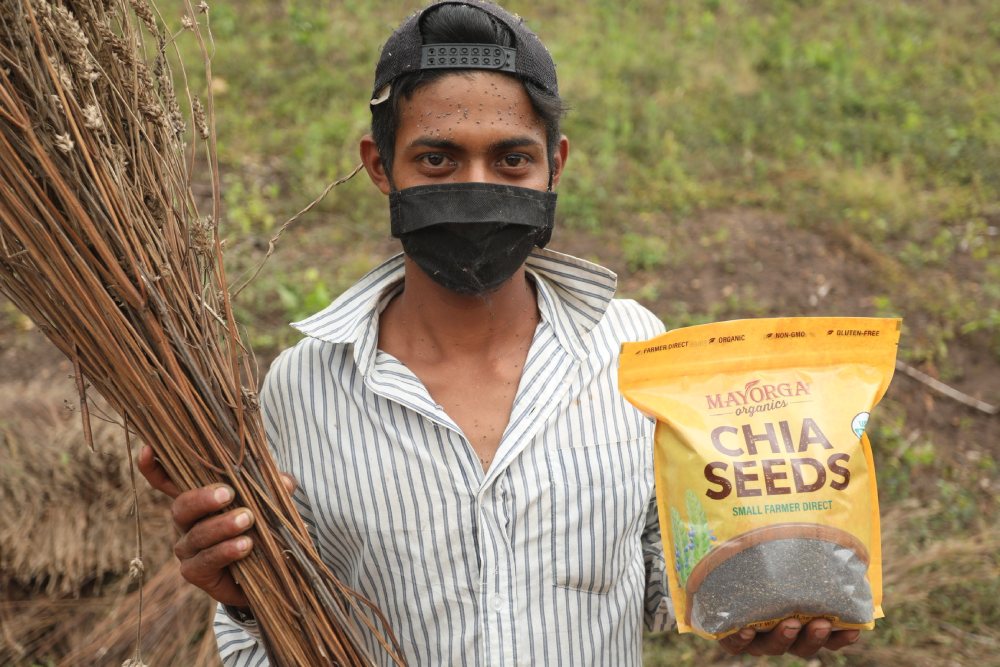Examining the impact of the Fairtrade Minimum Price

Fairtrade International Senior Manager for Coffee Monika Firl explains what the increase in the Fairtrade Minimum Price means for the global coffee industry.
In today’s world of economic and environmental uncertainty, it’s common to hear coffee consumer concern over raising prices. But considering the other end of the supply chain, increasing production costs, runaway inflation and ever-changing climatic conditions, puts the brunt of income instability on the shoulders of coffee farmers.
To assist with this challenge, Fairtrade is raising its Minimum Price for coffee, considered the “safety net” for farmers against extreme drops in the market price, to be paid by buyers to producers
in order for a product to become certified against the Fairtrade Standards.
As Senior Manager for Coffee at Fairtrade International Monika Firl explains, this increase is intended
to lower the price risks for coffee farmers and supply risks for roasters. She says the increase assures that resources are available in order to make trade happen, despite the intensifying impacts of climate change and price fluctuations in the market.
“The coffee industry has evolved incredibly in last decade, with improved qualities and increased expectations on traceability,” Firl says. “In order to supply the demand for these diversified coffees, farmers face an ever-growing list of expectations for sustainable production practices, highly selective harvesting, processing and drying practices, as well as for data collection, verification and timely communication, all of which adds time and costs to the end product.”
“The truth is that industry players and final consumers have become accustomed to paying artificially low prices for coffee for a very long time,” she adds. “We need to start talking about the hidden costs and the true value of quality and certified coffees. Strengthening the financial safety net for farmers, assures a base income and allows them to invest in their fields and local infrastructure, buffered from market fluctuation and increasing inflation in their home countries.”
The new Fairtrade Minimum Price for washed Arabica beans – which represents more than 80 per cent of all Fairtrade coffee sold – is US$1.80 per pound, an increase of 40 cents over the previous price of US$1.40 per pound. For washed Robusta, the new Fairtrade Minimum Price is US$1.25 per pound, an increase of 20 cents over the previous price of US$1.05 per pound. The new Minimum Price for natural preparation Arabica is US$1.75 per pound and for natural preparation Robusta is US$1.20 per pound.
The additional value for organic Fairtrade coffee has been increased by a third, from US$0.30 to US$0.40 per pound.
These changes will come into effect for all Fairtrade contracts signed as of 1 August 2023.
To achieve the new Minimum Price, Fairtrade conducted a cost of production analysis as well as a three-month consultation process with key stakeholders. More than 540 participants – 86 per cent of whom were farmers – from 40 countries provided critical inputs, ultimately resulting in Fairtrade’s proposal to the Fairtrade Standards Committee and the decision to raise the Minimum Price.
To stay abreast of changes across all origins, Fairtrade periodically reviews the Minimum Price’s relevance in direct and open consultations with the farmers themselves through their producer organisations.
The Fairtrade Standards Committee, which evaluates Minimum Price revisions, comprises three producer representatives, one trade union representative, three national Fairtrade organisation representatives, and one trader representative.
Proposed changes to Fairtrade standards or pricing must go before the Standards Committee for approval. Members of the committee will make the final decision to accept the proposed changes as presented or can request further clarification to assure sound decision-making. And the strong presence of farmer voices within the Fairtrade system ensures that the ultimate decisions are relevant and, ultimately, beneficial to them.
“The results of this most recent cost of production review, clearly showed that coffee farmers are facing higher risks in recent years due to climate change, ranging from the daily challenges caused by changing weather patterns to the dramatic weather events, such as hurricanes, draughts, and the intensified spread of pests and plant disease,” Firl says. “But when it comes to price, farmers are left guessing with a global coffee market that’s highly speculative and subject to rapid fluctuations. We saw the international prices hit US$2.50 per pound in the past year; but only a few years prior, it had sunk to 87 cents. Since April this year, prices have fluctuated between US$1.80 and US$2.00 (still above the new Fairtrade Minimum Price), but have averaged US$1.42 per pound over the past decade.”
Firl continues that the ripple effect of this unpredictability is felt across the entire coffee supply chain.
“But the fact that the majority of farmers cannot make a decent living in coffee is a tragic commentary for the industry and a huge risk for the future of the global coffee sector as a whole,” she says.
“With the new Fairtrade Minimum Price, Fairtrade is offering coffee farmers and their cooperatives a pricing safety net, better adapted to the uncertain times we’re living, while leaving the door open for them to earn more when market prices are above the Fairtrade Minimum Price. This is an essential tool that coffee farmers must be allowed to leverage in order to find renewed stability in their profession.”
In addition to the protective support of the Fairtrade Minimum Price, Fairtrade-certified farmers also receive a US$0.20 per pound Social Premium. This is an additional sum of money that is collectively invested in projects to improve productivity, climate adaptation, quality, infrastructure, and basic community services identified as priorities by the farmers and their organisations.
According to Fairtrade, smallholder farmers produce 60 per cent of the world’s coffee yet nearly half of those smallholder farmers are living in poverty, and nearly a quarter live in extreme poverty. Although coffee prices in 2022 were relatively high, Firl says profits from coffee sales, rarely trickle back down to the farmers.
“If we’re going to be serious about tackling poverty in the global supply chain, then everyone in the supply chain – from consumers to retailers to traders – must do their part and pay farmers their fair share,” she says.
But, Firl says, system stakeholders understand that prices cannot simply be increased in order to guarantee farmers a living income, as raising the Fairtrade Minimum Price holds considerable risk.
“Fairtrade farmers were aware of the potential loss in sales, if we are not able to gain market acceptance of higher prices. But given the costs they face, the majority opinion prevailed to move ahead with the new pricing. Meanwhile, we will continue to work closely with producer cooperatives and buyers to demonstrate the value of moving towards a living income in a responsible way,” she says.
“Our desire is ultimately to empower millions of farmers and workers around the world by tackling poverty and poor working conditions. We will continue to advocate for a level playing field, through regulatory frameworks as well as consumer awareness and demand – as incentives to encourage companies to take action.”
It’s Firl’s hope that the future of coffee is one where fair pricing is the norm.
“It is not acceptable for coffee farmers to continue to subsidise the multi-billion-dollar coffee industry, while also taking on the hard work of sustainable transition,” says Firl.
“Fairtrade coffee farmers are doing their part, and the new Fairtrade Minimum Price is an important step forward. We know that farmers will continue to face increasing costs to comply with requirements related to deforestation and other priorities of governments, brands, and conscious coffee drinkers.
“Reaching a sustainable living income for farmers will require collective action across the industry, and is not something that Fairtrade alone can achieve. It is time for the global coffee industry to step up and walk the talk.”
For more information, visit www.fairtrade.net
This article was first published in the July/August 2023 edition of Global Coffee Report. Read more HERE.
The post Examining the impact of the Fairtrade Minimum Price appeared first on Global Coffee Report.




Responses